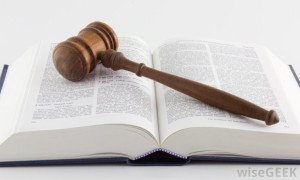 The past few months have been loaded with bits and pieces of information regarding travels to Cuba, and the normalization of our relationship with the next door neighbor. As our partnership with the country continues to improve, it is imperative for us to become familiar with Cuban legislature and its laws. It has been over 50 years since the Cuban Embargo was put in place, and establishing appropriate channels to exchanging legal information and policies will be very helpful towards tourism between both countries.
The past few months have been loaded with bits and pieces of information regarding travels to Cuba, and the normalization of our relationship with the next door neighbor. As our partnership with the country continues to improve, it is imperative for us to become familiar with Cuban legislature and its laws. It has been over 50 years since the Cuban Embargo was put in place, and establishing appropriate channels to exchanging legal information and policies will be very helpful towards tourism between both countries.
The Florida Bar Association is sponsoring a group of 37 lawyers to fly to Havana this week and attend a four day seminar. The objective of this trip will be for US attorneys to become familiar with Cuba’s legal system and politics. Given the overwhelming numbers of travels that are planned to happen in the next few years, this council will also look at the economic state of Cuba and bring back these important findings.
The four day excursion will also focus on the understanding of foreign organizations operating in Cuba, and the legal ramification that will follow their establishment. The attorneys will also become familiar with specific regulations regarding investment opportunities, and business dealings. During this trip the attorneys will also be meeting with their counterparts from the Cuban Bar Association, as well as state officials. These exchanges will place light on a lot of inquiries US companies have about owning land or establishing businesses in Cuba. Topics on telecommunications and banking, as well as the supply of water and electricity are some of the most immediate questions investors would like to know. On a lighter note, the 37 lawyers will also be able to tour some of the country’s historical establishments, such as the Museum of Cuban Art and have a performance of Cuban music and dance.
Cuba is taking a cautious response in relation the US inquiries and interests. Given that there are no private practices all commercial opportunities have to pass through government- run entities.

 Lawyers are often judged not only by their oratory and interaction skills in the courtroom, but also on their writing capabilities. Someone’s legal writing style differs due to a wide range of circumstances, such as the size of the firm they work for and the amount of resources offered, as well as the magnitude of the case and its specific requirements, which differ case by case. Bryan A. Garner has an extensive career as a lawyer, guest speaker and writer. He is well known for his
Lawyers are often judged not only by their oratory and interaction skills in the courtroom, but also on their writing capabilities. Someone’s legal writing style differs due to a wide range of circumstances, such as the size of the firm they work for and the amount of resources offered, as well as the magnitude of the case and its specific requirements, which differ case by case. Bryan A. Garner has an extensive career as a lawyer, guest speaker and writer. He is well known for his  A recent lawsuit was settled between the United States and a New York resident who claimed that the DEA (Drug Enforcement Administration) created a Facebook profile page featuring her in skimpy attire, other compromising situations, as well as photos of her and her relatives and underage son. Although the government does not admit to any fault, they did settle with the plaintiff for the amount of 134,000 dollars.
A recent lawsuit was settled between the United States and a New York resident who claimed that the DEA (Drug Enforcement Administration) created a Facebook profile page featuring her in skimpy attire, other compromising situations, as well as photos of her and her relatives and underage son. Although the government does not admit to any fault, they did settle with the plaintiff for the amount of 134,000 dollars. This month, six attorneys were convicted in a case that included a billion dollar fraud from partners and lawyers at a South Florida firm. The organization’s ex administrator helped prosecutors pin down the attorneys involved in the scheme, in exchange for cutting down her prison stay from ten to five years.
This month, six attorneys were convicted in a case that included a billion dollar fraud from partners and lawyers at a South Florida firm. The organization’s ex administrator helped prosecutors pin down the attorneys involved in the scheme, in exchange for cutting down her prison stay from ten to five years. 
